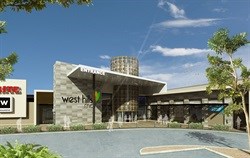South African retailers looking to expand into Africa need to understand the consumer market because the copy and paste of what works in South Africa does not work in other African countries.
Over the past few years, we have seen and continue to see the changing retail landscape in sub-Saharan Africa. However, all these changes require patience, hard work and innovation on the part of the property investor, developer and retailer entering any of the retail markets in the region, says Group CEO, Malcolm Horne of Broll Property Group.
Speaking ahead of the 4th Annual Africa Property Investment Summit (API) 2014 which takes place on 13 and 14 October at the Sandton Convention Centre in Johannesburg, Horne says Africa has got great potential and opportunities for real estate investments.
He explains that a lot of international brands are finding the sub-Saharan African retail market appealing because the African consumer has become sophisticated in what they want and at what price they want it at.
The future of retail
From what we see, points out Horne, the growth of retail in sub-Saharan Africa is good news, however, it has a down side for other retailers.
Some retail store concepts face risks of oversupply, struggling retail centres are being converted into Chinese-owned mall and furniture stores are under increasing pressure and banks are rationalising.
On the positive side, he says for those with a sweet tooth, there has been an increase in enquiries from frozen yoghurt and ice cream stores, increased use of technology in retail centres as many shopping centres provide Wi-Fi for shoppers as well as the growing online retail market.
Furthermore, Horne says education brands such as Kumon and Master Maths are moving into previously difficult-to-let retail space while no-frills gyms and home improvement centres have been active in acquisition of sites.
"Large national tenants prefer standalone retail stores to avoid high common area and utility costs.
"In SA, we are seeing increased emergence of convenience retail with forecourt offerings from retailers such as Woolworths, Pick n Pay and other niche brands like Thrupps."
Africa retail projects
Horne notes that retailers who have shown interest in Broll's East African projects include established local retailers, master franchise, retailers from the Middle East and South African retailers.
The GLA of a shopping mall in East Africa projects can vary between 13,000m2 to 68,000m2.
The GLA of the company's projects in the SADC region ranges between 8,000m2 to 130,000m2. Average line shop rentals are between $55-$65/m2 in Angola and $35-$55/m2 in a regional mall in South Africa compared to $25-$50/m2 in East Africa.
Retail interest in the SADC region include master franchise, Middle East retailers in Angola (limited interest in SA), global luxury brands and strong SA local retail expansion into the region.
In West Africa, Broll's projects have a GLA of between 8,000m2-27,000m2, with average line shop rentals of between $55-$65/m2.
"The West Africa market is seeing a lot master franchise as well as emerging Middle East retail interest, European brands and a strengthening of the local retail market," says Horne.
Africa dialogue
Horne is one of the panellists at the API Summit on a topic entitled: "Understanding Retailers' Strategy" scheduled for Tuesday, 14 October, for which the Broll Property Group is a Gold Sponsor for the third time running.
Raeesa Rajah, API Conference Coordinator, says they believe the collaboration and team work is the key driver behind real estate projects in Africa, noting that research such as the Broll Tenant Handbook to be launched at the API Summit and the Broll Retail Consumer Survey 2014 launched in August is pertinent in capturing the opportunities and challenges facing real estate investors in the region.
































